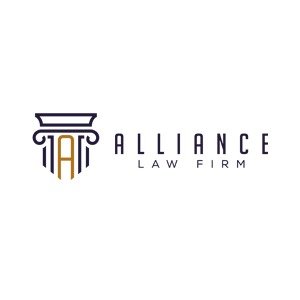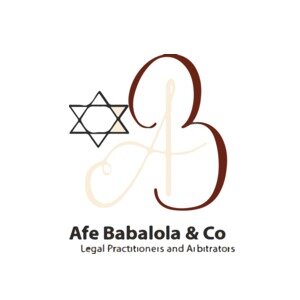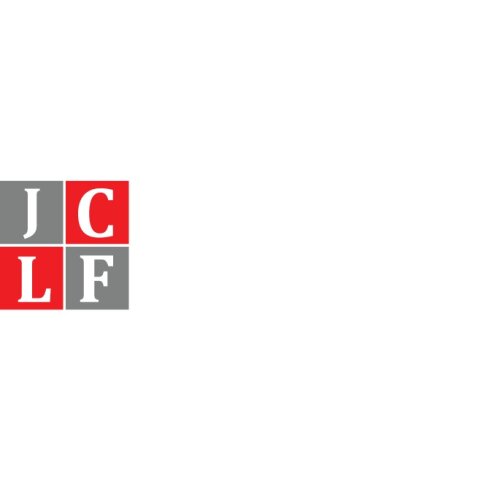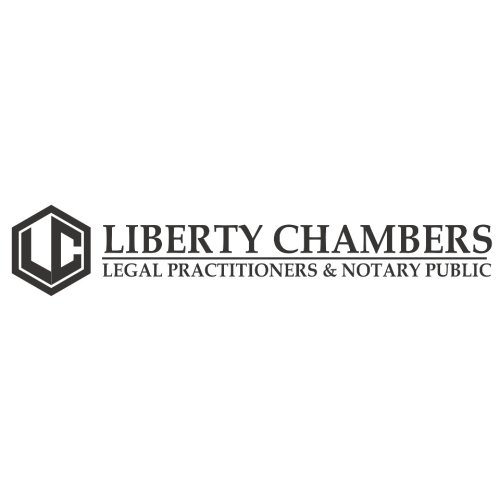Best Financial Services Regulation Lawyers in Port Harcourt
Share your needs with us, get contacted by law firms.
Free. Takes 2 min.
List of the best lawyers in Port Harcourt, Nigeria
About Financial Services Regulation Law in Port Harcourt, Nigeria
Financial Services Regulation in Port Harcourt, Nigeria, refers to the legal frameworks that govern financial institutions, services, and markets to ensure stability, integrity, and consumer protection. This area of law involves monitoring and enforcing compliance with various financial regulations, such as those related to banking, insurance, capital markets, and payment systems. The regulations are designed to protect consumers, prevent financial crimes, and promote the smooth functioning of the financial system. In Port Harcourt, financial services regulation is primarily overseen by national regulatory bodies like the Central Bank of Nigeria (CBN) and the Securities and Exchange Commission (SEC).
Why You May Need a Lawyer
There are several scenarios in which you might need a lawyer specializing in financial services regulation in Port Harcourt. For instance, if you are establishing a financial institution and need help navigating regulatory compliance issues, a legal expert can provide guidance on licensing and operational requirements. Consumers who believe they have been wronged by a financial service provider might seek legal assistance to understand their rights and pursue compensation. Additionally, businesses that face disputes or litigation concerning financial transactions or agreements can benefit significantly from legal counsel with expertise in this area.
Local Laws Overview
In Port Harcourt, financial services regulation is influenced by numerous key laws and regulations. The Banks and Other Financial Institutions Act (BOFIA) oversees the operation and regulation of banks and financial institutions. The Investment and Securities Act provides the framework for the regulation of Nigeria’s capital market, while the Central Bank of Nigeria Act gives the CBN the authority to supervise and regulate financial institutions. The Nigerian Deposit Insurance Corporation (NDIC) Act ensures depositor protection in the banking sector. Understanding these laws and their implications is essential for anyone operating or interacting with financial services in Port Harcourt.
Frequently Asked Questions
1. What is financial services regulation?
Financial services regulation involves laws and rules that govern financial institutions, aimed at maintaining the integrity and stability of the financial system and protecting consumers.
2. Who regulates the financial sector in Port Harcourt?
The financial sector in Port Harcourt is primarily regulated by national bodies such as the Central Bank of Nigeria (CBN), the Securities and Exchange Commission (SEC), and the Nigerian Deposit Insurance Corporation (NDIC).
3. What is the importance of financial regulation?
Financial regulation is crucial for ensuring that financial markets operate efficiently, protecting consumers, preventing fraud, and maintaining financial stability in the economy.
4. How can I ensure compliance with financial regulations?
Ensuring compliance involves understanding and adhering to the relevant regulations, adopting best practices in governance and risk management, and staying informed about regulatory updates.
5. What do I do if a financial institution has wronged me?
If you feel wronged by a financial institution, you can report the issue to the relevant regulatory body, seek mediation or arbitration, or consult a lawyer specializing in financial services regulation.
6. Can I operate a financial service business without a license?
No, operating a financial service business without the appropriate license is illegal and could result in penalties or closure by regulatory authorities.
7. Which laws affect financial service providers in Port Harcourt?
Key laws include the Banks and Other Financial Institutions Act (BOFIA), the Investment and Securities Act, and the Central Bank of Nigeria Act, among others.
8. What should I consider when entering into a financial agreement?
Ensure the agreement complies with relevant regulations, clearly outlines terms and conditions, and includes dispute resolution mechanisms. Consulting a legal expert is advisable.
9. How often do financial regulations change?
Regulations can be updated frequently to respond to evolving market conditions, technology, and risks. Staying informed through regulatory announcements and updates is crucial.
10. Where can I learn more about financial regulations in Nigeria?
You can learn more by visiting the websites of regulatory bodies like the CBN, SEC, and NDIC, attending seminars, or consulting with legal and financial experts.
Additional Resources
Here are some resources and organizations that can be helpful:
- The Central Bank of Nigeria (CBN) - For regulatory guidelines and policies
- The Securities and Exchange Commission (SEC) - For information on capital market regulations
- The Nigerian Deposit Insurance Corporation (NDIC) - For depositor protection and insurance
- Nigerian Bar Association (NBA) - For access to legal professionals specializing in financial services
- Financial lawyers and law firms in Port Harcourt
Next Steps
If you require legal assistance in the field of financial services regulation in Port Harcourt, consider taking the following steps:
- Identify the specific legal issues or needs you have concerning financial regulation.
- Research and reach out to legal professionals with expertise in financial services regulation.
- Prepare any relevant documentation or information that may be needed to discuss your case.
- Schedule consultations to discuss your situation and potential legal strategies.
- Stay informed about the regulatory environment and any potential changes that may affect your case or business operations.
Lawzana helps you find the best lawyers and law firms in Port Harcourt through a curated and pre-screened list of qualified legal professionals. Our platform offers rankings and detailed profiles of attorneys and law firms, allowing you to compare based on practice areas, including Financial Services Regulation, experience, and client feedback.
Each profile includes a description of the firm's areas of practice, client reviews, team members and partners, year of establishment, spoken languages, office locations, contact information, social media presence, and any published articles or resources. Most firms on our platform speak English and are experienced in both local and international legal matters.
Get a quote from top-rated law firms in Port Harcourt, Nigeria — quickly, securely, and without unnecessary hassle.
Disclaimer:
The information provided on this page is for general informational purposes only and does not constitute legal advice. While we strive to ensure the accuracy and relevance of the content, legal information may change over time, and interpretations of the law can vary. You should always consult with a qualified legal professional for advice specific to your situation.
We disclaim all liability for actions taken or not taken based on the content of this page. If you believe any information is incorrect or outdated, please contact us, and we will review and update it where appropriate.

















